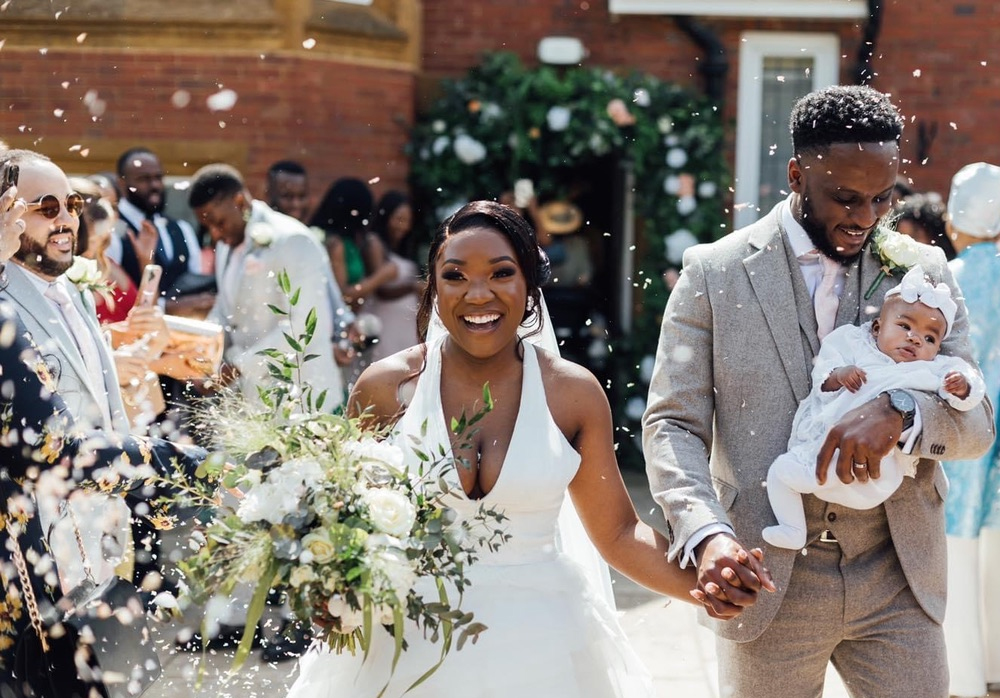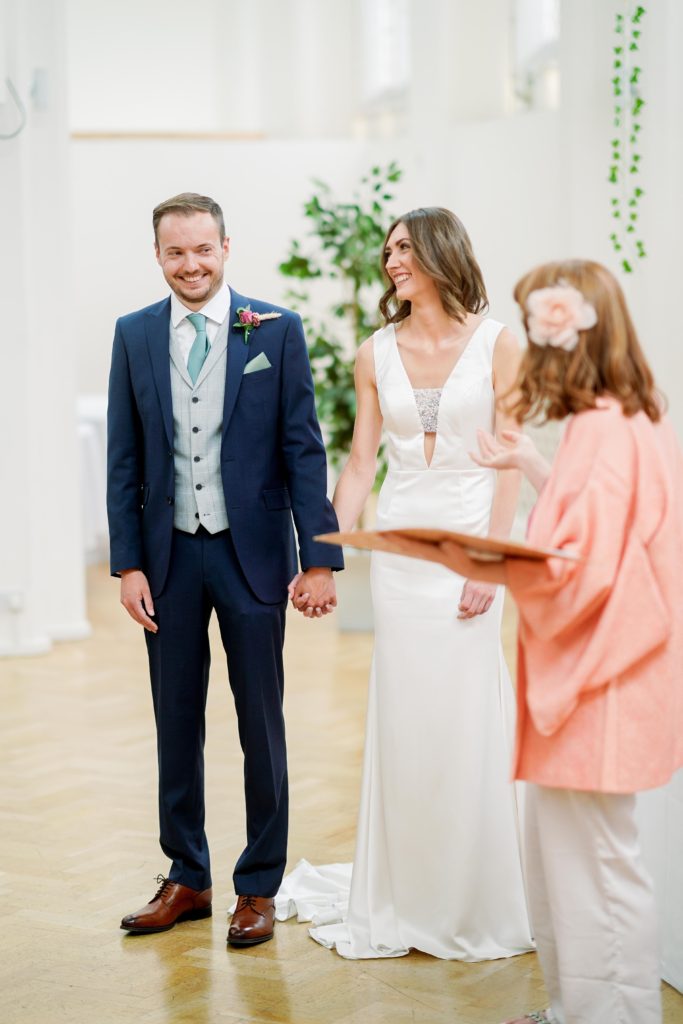
Many of you will know that there is Marriage Law Reform being debated at the moment. The debate gets really nasty at times. The idea of the reform among other things is that Licensing should extend from Register Office Registrars, who are also peripatetic in venues, to also include Celebrants who are independent of Register Offices. This is the most relevant part of the reform to me, my colleagues and to you, my couples.
It is proposed that training and accreditation to ‘licence’ marriage is offered to Humanist Celebrants, and we as Independents are arguing that this should extend to people like me who are ‘Independent’. This way we can do our ceremonies and ‘do the legal bit’ at the same time. Serving customers like yourselves.
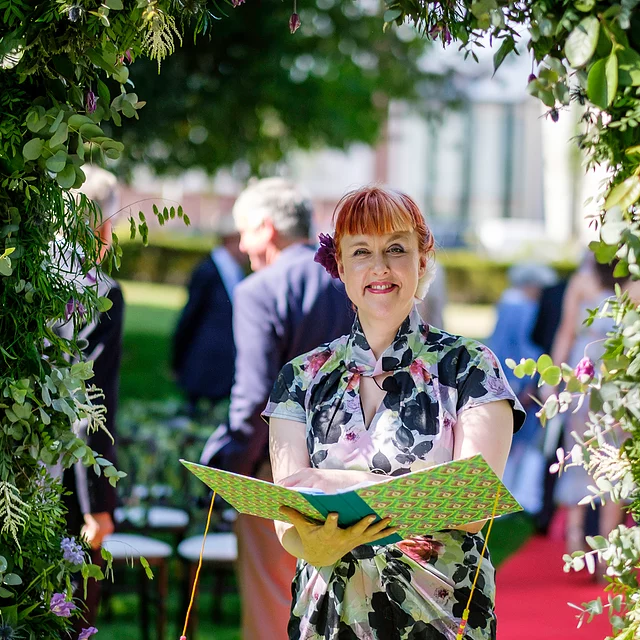
There is a body of individuals who insist upon referring to the work of Independent Celebrants like myself as ‘lacking in solemnity and dignity’. We are, they say, ‘the commercial side of things’, ‘focussed on fun’, like ‘Elvis Officiants in Vegas’. I can assure you that i have never worn a white suit with rhinestones in my life, but i see nothing wrong with it if you do and if I’m asked to do so I will relish it.
Certain key advocates for Humanism are using words like ‘commercial’, ‘frivolous’, ‘eccentric’, alongside the aforementioned lack of ‘solemnity’ and ‘dignity’ in relation to work like mine. I don’t agree that commercial, frivolous, eccentric and less solemn equates to a lack of dignity.
Having said that, asserted like this it is intended to discredit me and my peers. It demeans me, it demeans my clients. It is time that this ignorant view is challenged. It really isn’t acceptable to use slanderous nonsense like this in Legal debate.
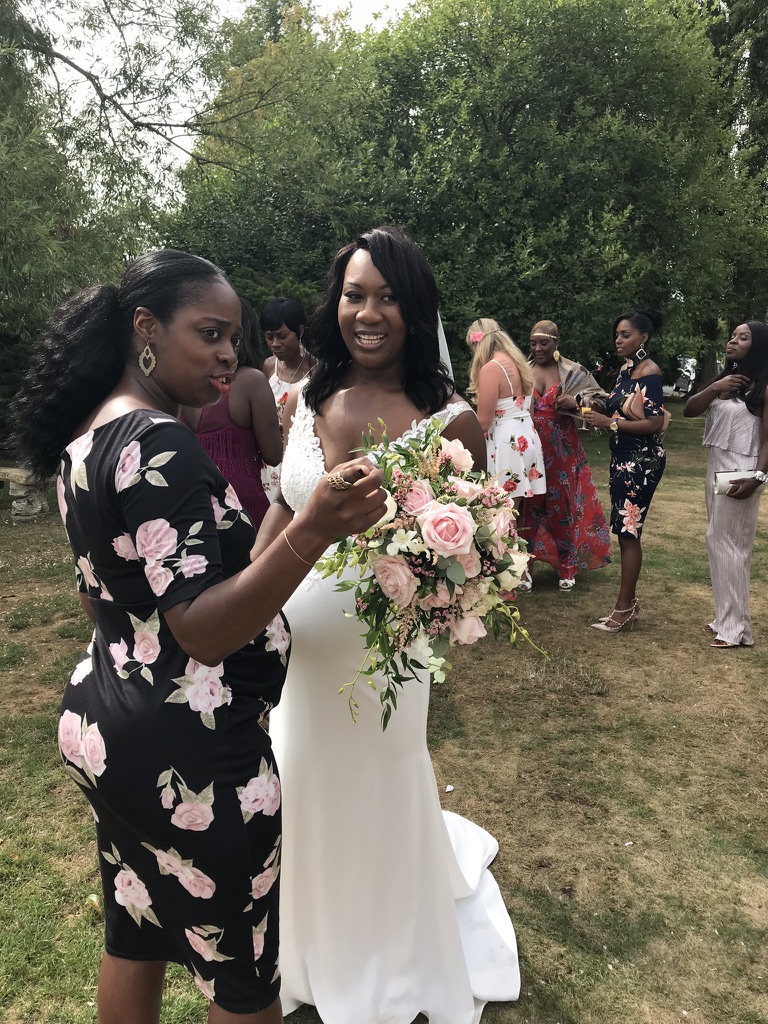
All this is slander and ignorance and there are people who stand to gain from discrediting us with this. The Reformers are being told that we don’t take it seriously, that we are not as well trained and on and on and it is wearing us down.
Humanists and Registrars are favoured as the ‘go to’ Celebrant groups for licensing, but they are no less ‘commercial’ and often charge much more than us. I think we should be remunerated for our highly skilled and valuable work and I don’t have an issue with them charging high fees.
Currently I am doing a ceremony for the wife of a well respected `High Court Judge’. They did not ask for ‘solemn’ or ‘dignified’, they did not assume that my work was ‘frivolous’.
Currently I am doing a ceremony for the wife of a well respected `High Court Judge’. They did not ask for ‘solemn’ or ‘dignified’, they did not assume that my work was ‘frivolous’. In the past I did a ceremony for an extremely high profile MP called Theresa Stewart, the family were delighted with my work. I should not have to make account of myself and defend my credibility like this.
They are absolutely as important as every other family and couple I serve. There is no hierarchy. Your ceremonies are no less meaningful if they are fun or eccentric. Not many people ask for solemn I assure you. You all have different stories and different needs. All of them matter, the fun, the frivolous, the eccentric, people on the minimum wage and wealthy people. They all have validity. They all are about human experience.
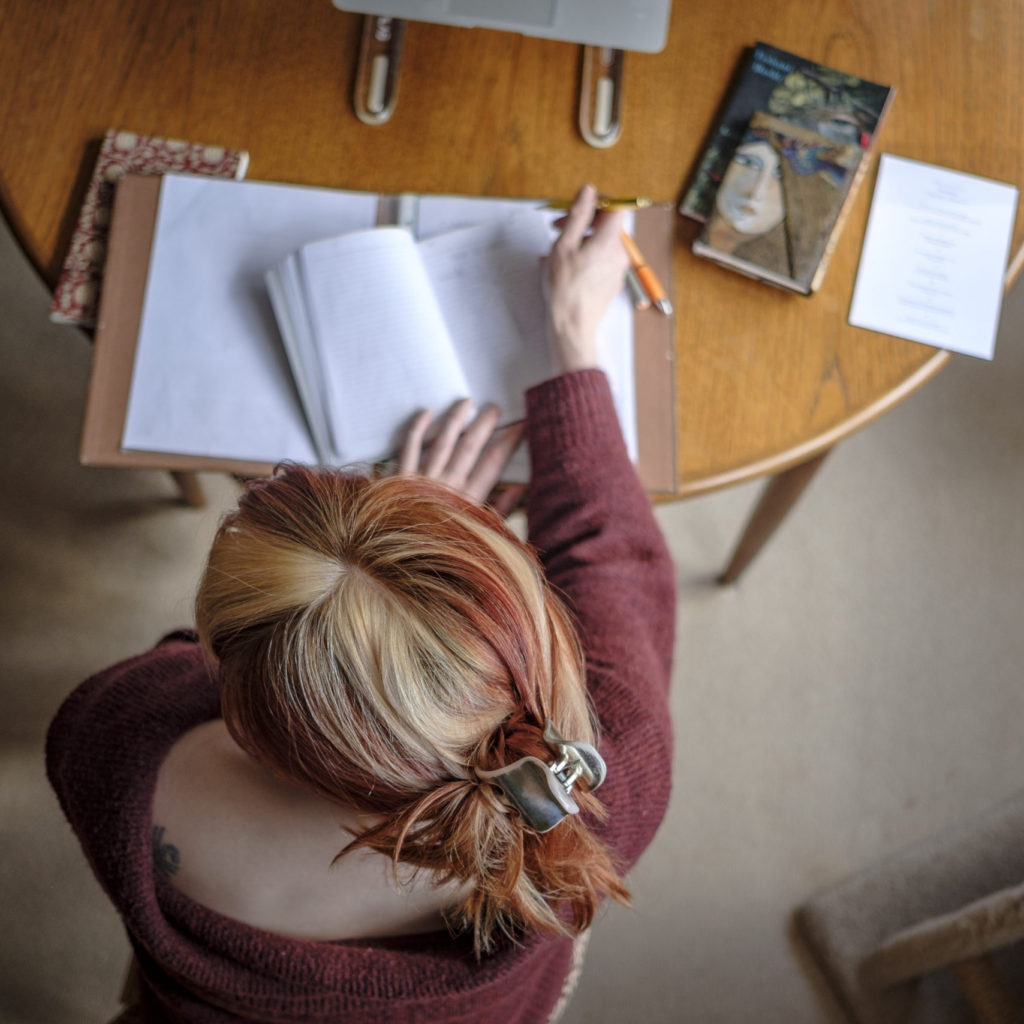
So, these are all words which have been used in recent debate in relation to the kinds of ceremonies that independent Celebrants offer with regard to weddings. The fact that Register Offices and Humanists and Churches are also in a Commercial context and also earn money from their ceremonies…sometimes significantly more…has not, pardon the pun, ‘registered’. There is a general pejorative tone. Humanists and Registrars and Religious Leaders are taken seriously in debate around licensing specific Officiants to ‘do the legal’ bit and frankly, Independent Celebrants are not. Even if, like me, you think Commercial considerations are a regrettable fact of life, frivolity is sometimes good and eccentricity even better, when legal reformers use these terms this is not what they mean to imply.
Context is all.
I have to eat….
Do I earn money for all my hard work? Not much actually, but I do try to because I have to eat and for most of us living in a Capitalist, materialist world money is a fact of life. Whether or not you think this is a good thing or not is up to you.
Whatever the case, whether I should or shouldn’t earn money from my ceremonies is academic… I have to eat. I have to clothe myself, keep warm, light my home too and in today’s current economic climate I need way more money than I’ve ever earned and perhaps more than I will ever be able to earn if reformers like these have their way.
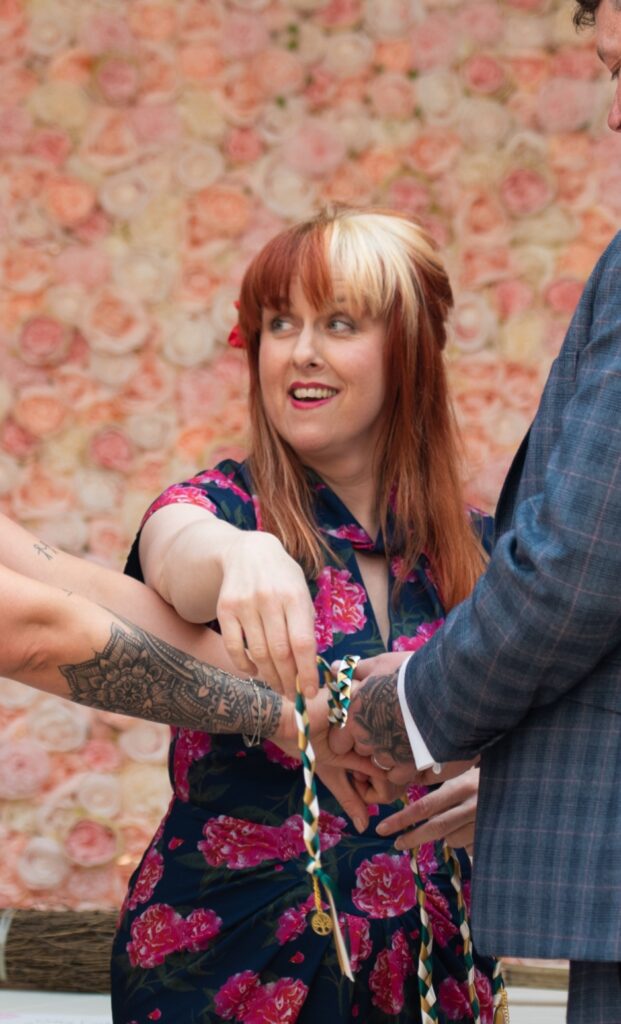
Charging money does not ‘devalue’ our work
For me, my work, if you can’t tell already, is resolutely not about money but i am absolutely NOT of the opinion that ‘money doesn’t matter’. Money does matter. It is an insult to people who have none to claim that it doesn’t. Such a claim is a luxury most of us cannot afford.
I like to earn money doing my ceremonies instead of anything else because it is what I do best, it is what I love and it helps so many people and so it is very rewarding too. It would be a waste of my skills to be doing anything else. I have to earn money at it or else I can’t do it. That would be a terrible shame for me and for you. Earning money affords me financial independence and quality of life.
It doesn’t make me a greedy, disingenuous, insincere woman. It doesn’t make my ceremonies meaningless or somehow ‘impure’, ‘sullied’, ‘tainted’.
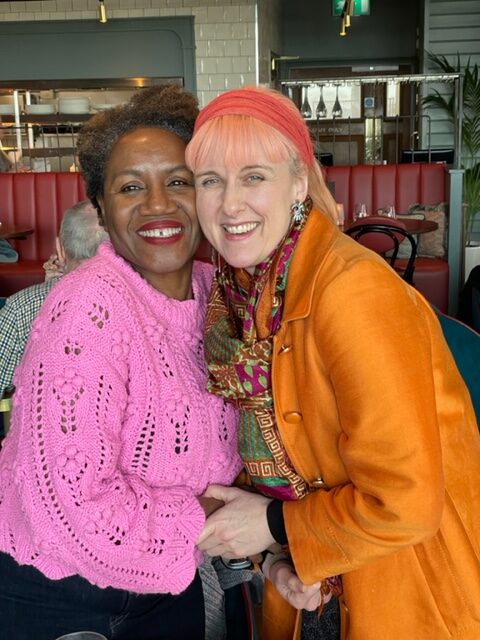
Ceremonial rites of passage are traditionally not associated with money. The notion of the ‘sacred’ is not associated with money either. In the main the opposite is true. Touching the sacred with money is seen as dirty.
The Law can be associated with money but again not in a good way. We think of ‘rich’ lawyers and usually associate this with ruthless corruption. I doubt many of them are either rich or corrupt. So if we look at this debate around who should or shouldn’t be allowed to ‘licence’ marriage or ‘do the legal bit’ and about where and when said people should be allowed to conduct legal marriages we are dealing with two fundamental concepts.
The Legal v The Ceremonial
The matter of The Law, which is also connected to the idea of The State, and the matter of The Ceremonial which has traditionally been associated with Religion and (to a lesser extent) Spirituality. These Ceremonies may or may not have been taken seriously depending upon how legitimate that specific Religion or Spirituality was taken at any given time in history. There are significant issues here from a Feminist perspective too. More on this in another post.
Witches, Goddess worship, the ‘Feminine’ in Spirituality has persistently been discredited to suit the Patriarchy. Perhaps it is not ‘serious’ enough. The vast majority of Independent Celebrants identify as women. To tell us that we should not be earning money for our ‘frivolous’ work is preposterous and discriminatory apart from anything else.
Americans are way ahead

We are dealing here with a UK context and we still have a connection between The Law, The State and The Ceremonial. The Ceremonial is still seen as Religious and increasingly being packaged as Humanist if you want a ‘ceremonial’ component that is taken seriously but is not Religious.
What is happening right now in our British society is a further separation of The Law, The State and The Ceremonial and we don’t quite know what to do about it. Our American cousins are WAY AHEAD OF US, they’ve been doing this since the beginning.
They all dress as Elvis! Anti-American Sentiment
I think an American would look on in utter disbelief at the knots we are tying ourselves up in here. There “I can go to Las Vegas and have someone dressed up as Elvis ‘do the deed’. This is what British people will say to you about American Weddings. Some scoff about it and others have done it. American Wedding Ceremonies are much, much more than that and in the USA you can find an array of different options.
Many see this choice as a simple reflection of a corrupt consumer society but I say it offers freedom of choice. This is a well worn debate and applies in so many fields.. But in Britain we are still quite ‘wedded’…see what i did there?…to the idea of what it means to ‘do things properly’.
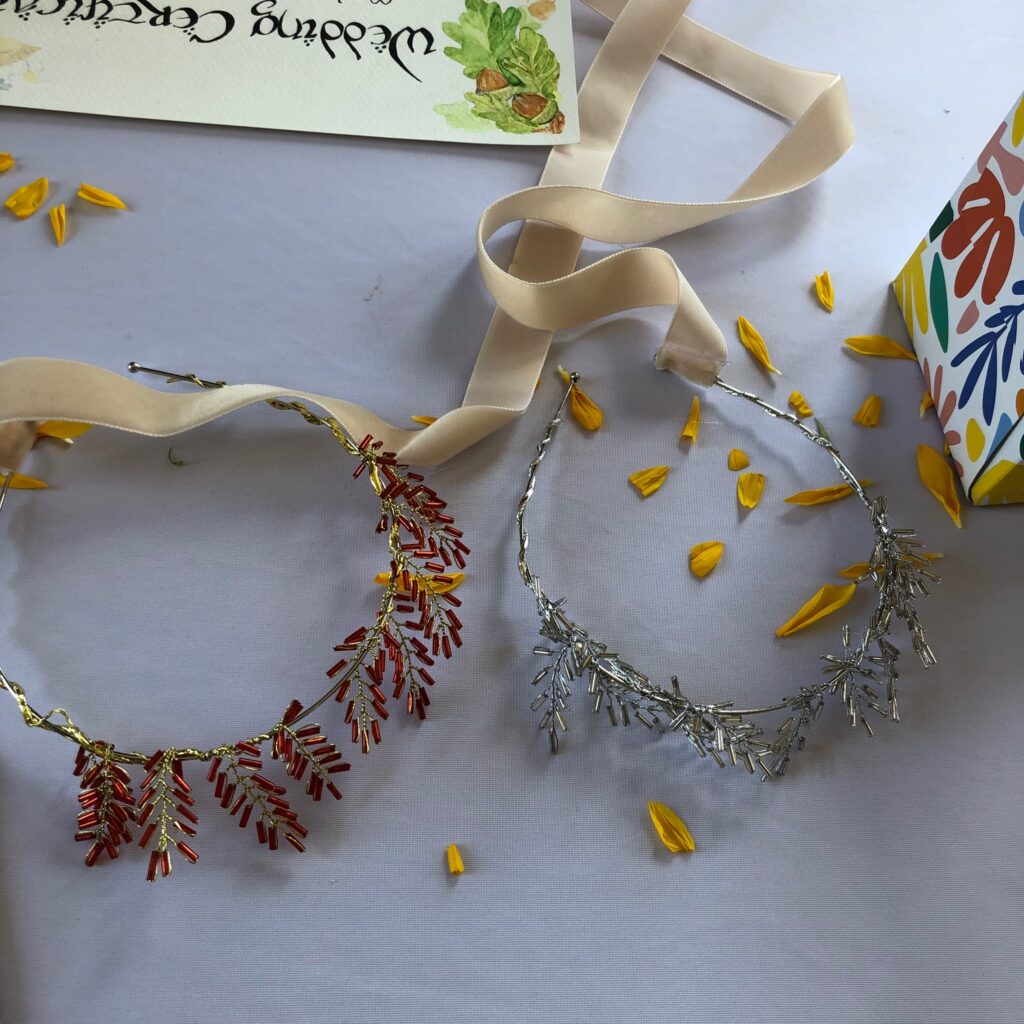
We need genuine debate around ‘The Ceremonial’ as a concept distinct from ‘The Legal’
There are so many issues to address around this and the transition we are going through here is peculiarly British I think. I say ‘I think’, and i really do ‘think’ about this…a lot…but I haven’t done any research around it for years. There will be books about all this and I haven’t read any of them because I’m too busy working! But, for what it is worth, this is what I think. It is anecdote and opinion, but if my fellow professionals in law reform think it is good enough to use anecdote and opinion to form the law I think I have ‘license’! To give my own anecdotal rhetoric
if my fellow professionals in law reform think it is good enough to use anecdote and opinion to form the law I think I have ‘license’! To give my own anecdotal rhetoric
A very British Debate
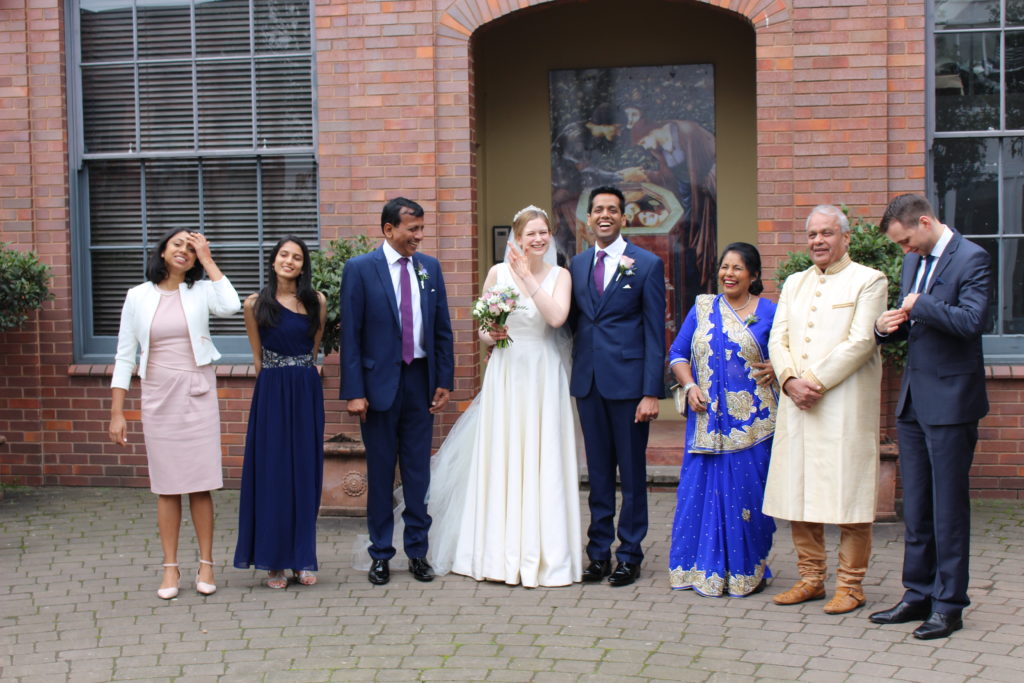
What i think is that this is a very British debate. We draw clarity around it if we look at how we relate to American ways of doing things. Debate around Marriage Law concerns matters of class, propriety, gender, tradition and monarchy, but also the debate is challenging our ideas about Britishness. Many will say, “you can get married ‘IN VEGAS’, if that’s your ‘thing’…but we ‘do things differently here.” What is meant by this is not that we do things ‘differently’, because for the most part we don’t, but that we do things ‘properly’! We believe, fundamentally, that in Britain we ‘do things properly’. As we all know, ‘belief’ has little to do with fact and if the past 2 years have taught us anything they have surely exposed this ‘belief’ as little more than ‘myth ‘.
I like a good myth and they have their place but the myth that ‘we do things properly in Britain’ is helping nobody right now.
I like a good myth and they have their place but the myth that ‘we do things properly in Britain’ is helping nobody right now. It certainly isn’t helping me! For some, Marriage Law Reformers and those they consult, particularly, it is clearly a belief, but it certainly isn’t true.
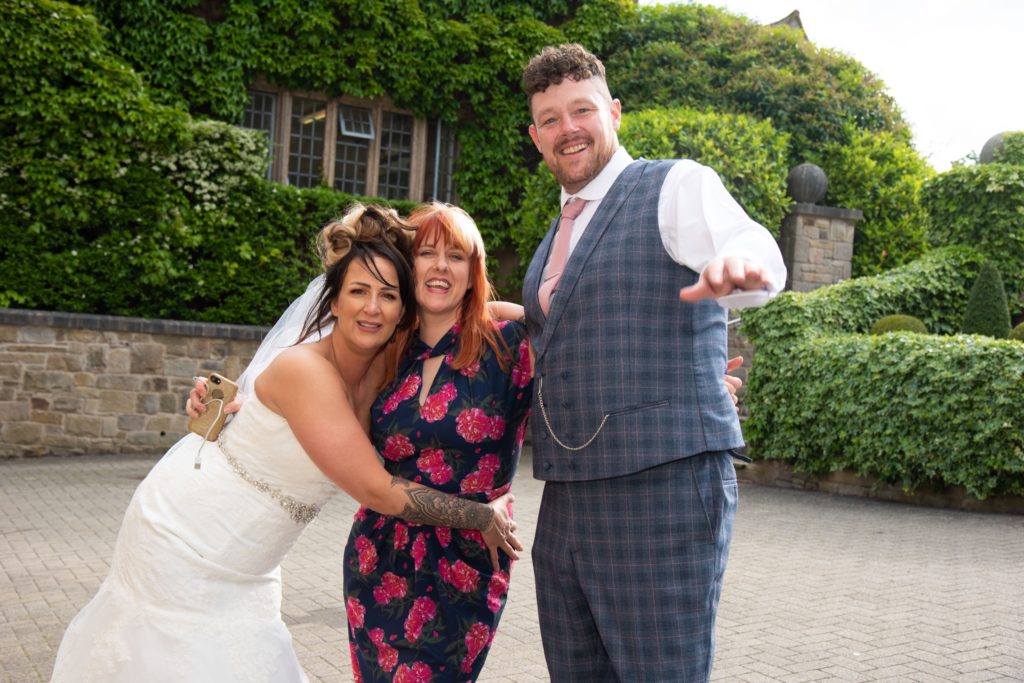
Core beliefs and ‘Story’
Beliefs persist. People cling to beliefs long after they have served their purpose. The thing, concept or identity one believed in might cease to exist or to have useful purpose but we cling on. We cling to our personal ‘core beliefs’ about our own stories. As British people, in all our multicultural, Interfaith complexity we are determined to assert that we are a nation who do things properly. It’s our ‘story’ and we are sticking to it.
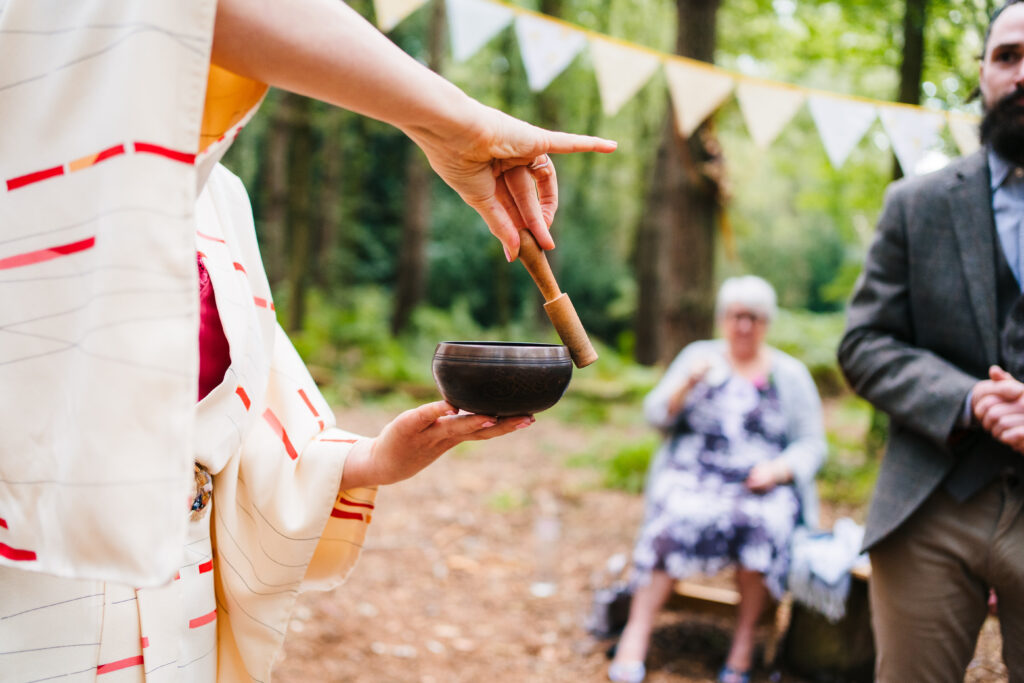
“I love stories, i know the power of them, I tell stories for a living‘
I love stories, i know the power of them, I tell stories for a living. I tell the stories of the people who have died and those who are getting married. I tell personal stories and I believe in the significance of them.
This is perhaps why, when I look at this debate…what I see is a story being told about a relationship. A relationship between Britain’s idea of itself and the world, a relationship between The Law and The Ceremonial, a relationship between the past and the present. Our relationship with Ceremony has so many layers. It has largely broken down I think. Many people have given up on it and would rather just ‘get it done’, a ‘signature and a ‘job done’. This saddens me greatly.
“The Ceremonial can be distinct from The Law and The Religion and The State AND still contain MEANING”.
What Independent Celebrants, like myself, are arguing, unconsciously at times, is that The Ceremonial can be distinct from The Law and The Religion and The State AND still contain MEANING. It can even be frivolous and eccentric and commercial…but still maintain meaning. This is a bizarre concept for British people of all cultures and walks of life. We don’t see how that can be true. I couldn’t see it for many decades. In The States it is normal. The Ceremonial can stand alone. Non-conformism is normal there, for obvious reasons.
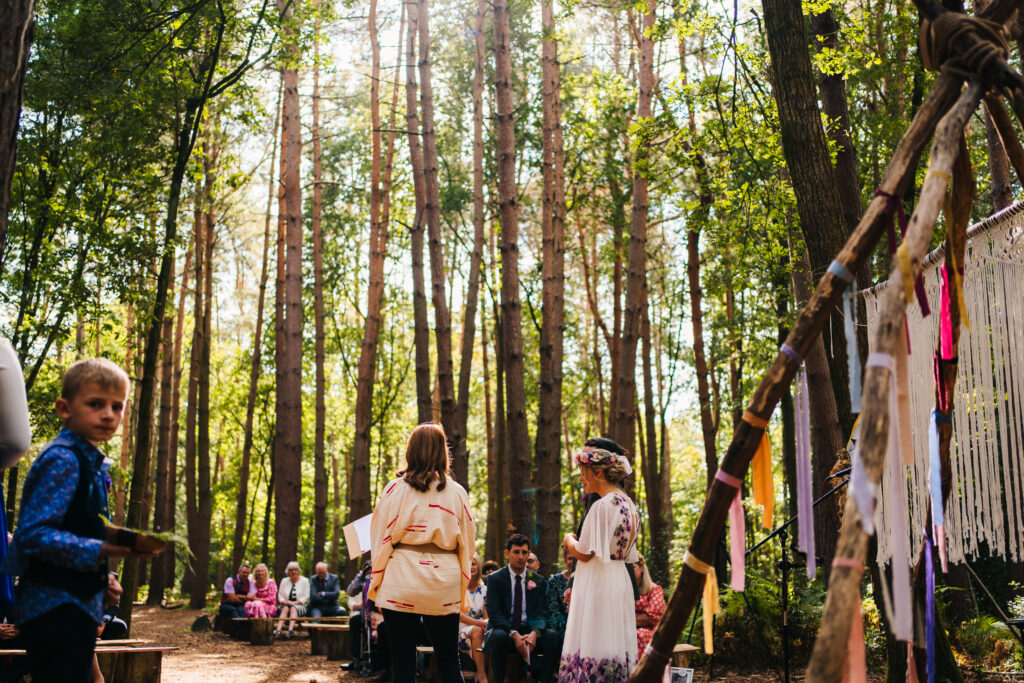
But when Ceremony is so embroiled with The Queen, The Changing of the Guards, Memorial Sunday, Downtown Abbey, Top Hats and Tails at Funerals, the bizarre rituals of The Houses of Parliament and weddings with the Royal Weddings of recent years, and those gone by, it gets complicated. If anything is a commercial commodity there you have one! Would there even be a Tourist industry without all this etiquette and ritual?
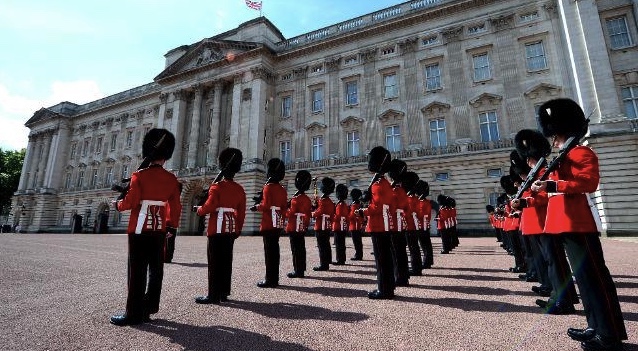
When we think of Ceremonial proceedings at British Hindu Weddings, British Muslim Weddings, British Sikh Weddings, British Jewish weddings of those of any British people of any Faith we think of elaborate, distinctive time honoured ‘traditions’ where everything is done ‘properly’.
So the idea of ‘doing it properly’ isn’t the preserve of those of white privilege, most British people with any Religious and cultural background will have a sense of the Ceremonial being linked to the idea of ‘propriety’. Doing it properly, and what that means is ‘according to tradition’. With these traditions we are looking at relationships to Religious identity and culture but it is no less British. These traditions fight really hard to be ‘taken seriously’ and are still fighting really hard in this very debate, to be taken seriously. In a white British Western culture with such rigid views about what is ‘proper’ it stands to reason that any ‘different tradition will fight even harder to fit into a culture that so values ‘doing it properly’.
“we only have to look to Meghan and Harry to see how non-conformist, mixed heritage cultural challenges to British conformism plays out”
We are still very ‘conformist’ here. I have countless young 20 something brides who want to be walked down the aisle and ‘given away’ by their Dad. I have so many people approach me for a ‘different and unique’ wedding but they want it to feel ‘like a real wedding’ and so they always have an ‘aisle’, they’re always given away by Dad, they have Best Men, they have Bridesmaids. We are a conventional nation when it comes to weddings and ceremonies.
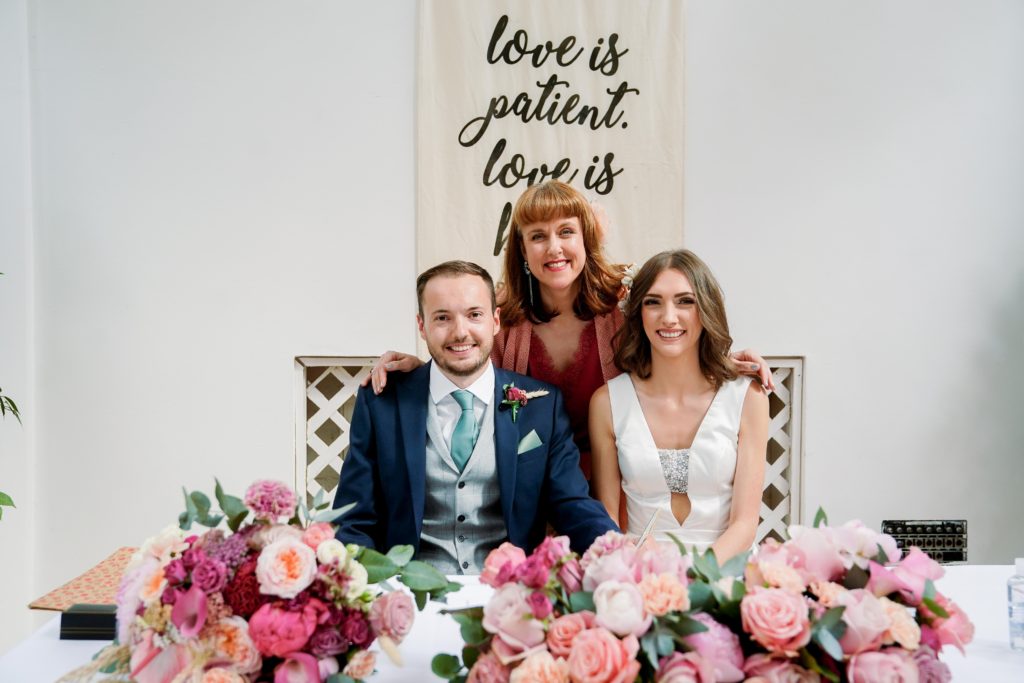
But things are changing and not everyone likes this shift in sensibilities.. Some of those changes relate to American traditions and the influence upon British culture of the American movie industry, including Disney!
Not many Law Reformers or Religious leaders want to believe that this American influence is a good thing.I once had a very strange conversation with a Vicar who insisted that the Brides he worked with had their bridesmaids walk behind them and not in front as has become the current trend. He said they should respect the ‘British tradition’ of the Bride coming First with the bridesmaids as secondary. He didn’t want to see what he saw as The American Tradition of the bridesmaids coming first creeping into his ceremonies. I never quite saw why he cared about it. I’m starting to see it now because it challenged his idea of the value of his institution.
We only have to look to Meghan and Harry to see how non conformist, mixed heritage cultural challenges to British conformism plays out. I refer you here…to this link from The Times which was the first thing I found about Meghan and Harry’s wedding “Harry and Meghan: backyard wedding was not a marriage” it proudly declares
https://www.thetimes.co.uk/article/harry-and-meghan-back-yard-wedding-was-not-a-marriage-mwppcfbk6
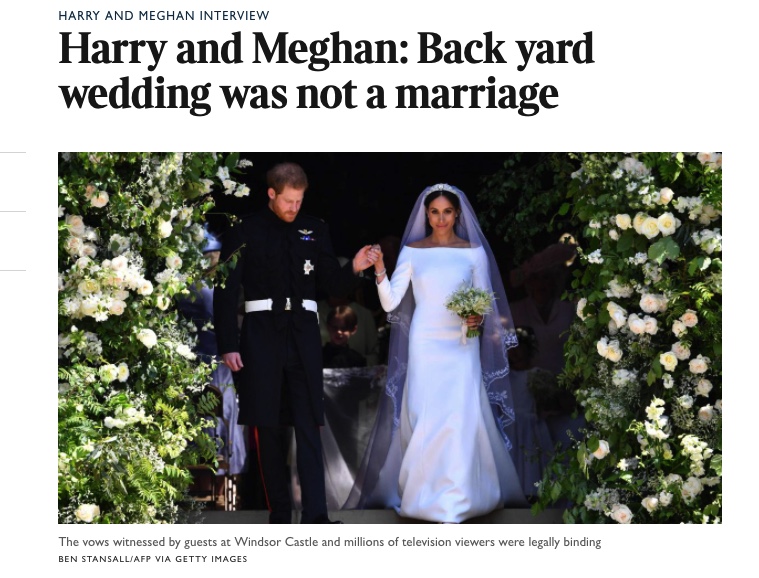
Along with the introduction on our shores of the shocking ‘bridesmaids first’ development came the new and apparently ‘dreadful’ term Groomsmen, which seems to me equally inoffensive. This is something no one had ever heard of here until relatively recently. Again you need to look at popular culture here, think of the weddings in Friends and all the films you have seen. Some are held outside and in candlelight, on clifftops, in fields and woodlands. And all kinds of ‘movies’ contain a presentation of ‘the Wedding’ as a concept, including the idea of the Disney Princess Wedding. I have had lots of Disney themed weddings. You can roll your eyes all you like, but it’s true. They were meaningful. For some people the idea that Disney can be ‘meaningful’ in a ceremony is a challenge to their worldview. To be honest it is a challenge to mine, but challenged we must be and change we must!
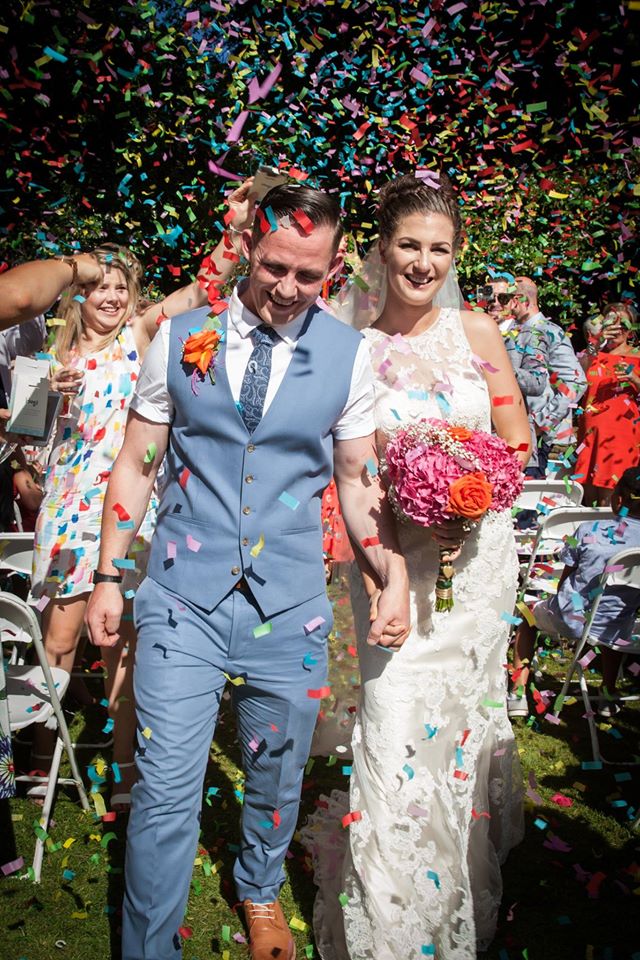
Follow this link to more on the influence of Friends upon our ideas around marriage
https://www.hellomagazine.com/brides/2020022685394/best-friends-wedding-moments-watch-clips/
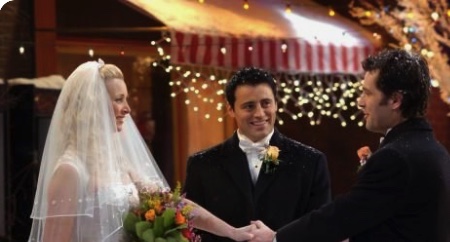
Personally I despise Downtown Abbey for so many reasons but it has a lot to teach us about The Marriage Law Reform, Class, Status and anti-American sentiment. It also teaches us much about the current debate. Think of poor American Cora. How she struggles to be taken seriously by the Dowager Countess or whatever her name is. “So American’! is the constant refrain. It is short-hand for ‘how dreadful’, ‘how uncooth’, ‘how trivial’, ‘how lacking in culture’ and significantly ‘how improper’. To say ‘how American’ is to pour disdain upon ‘them’. It is a form of othering which seems to have become culturally acceptable but is ultimately prejudical.
American culture, for all that we are saturated with it, has enduring connections here with ‘not doing things properly’. This is born historically of the American tradition of freethinkers and dissidents. Even in 2022 I sometimes hear people say that they don’t think Naming Ceremonies are for them because they are ‘too American’. It is very insulting to Americans but most of you know that it is a dismissive code and we have all heard things like this.
Ceremony without ‘tradition’, ceremony without the ‘pomp’ is considered a bit too ‘American’. What people mean by that is for them to explain but I think i read it as ‘insincere’ or ’over the top’ or ‘distasteful’ or just ‘not the real thing’, even ‘pretend’ or ‘faux’. There is some kind of idea that if it is not traditional, Legal, Religious or Humanist in tradition then it is just not ‘being done properly’. Commercialism is also a consideration. I’ve heard people say “‘well you can pay for ANYTHING there! , you can even pay to become a Reverend”. So to do something ‘for payment’ is to devalue it. Ceremonies have not ‘traditionally’ been associated with money here. It is distasteful to us, seen as mercenary. We have a very strange relationship with money. Very strange…a whole other topic.
That is our story. We are sticking with it. British people, we think, ‘do things properly’, we have the rituals in our arsenal, we don’t degrade ourselves by asking for payment, we know how to hold a knife and fork and if we don’t..well then we have another glaring problem. CLASS and ECONOMIC STATUS
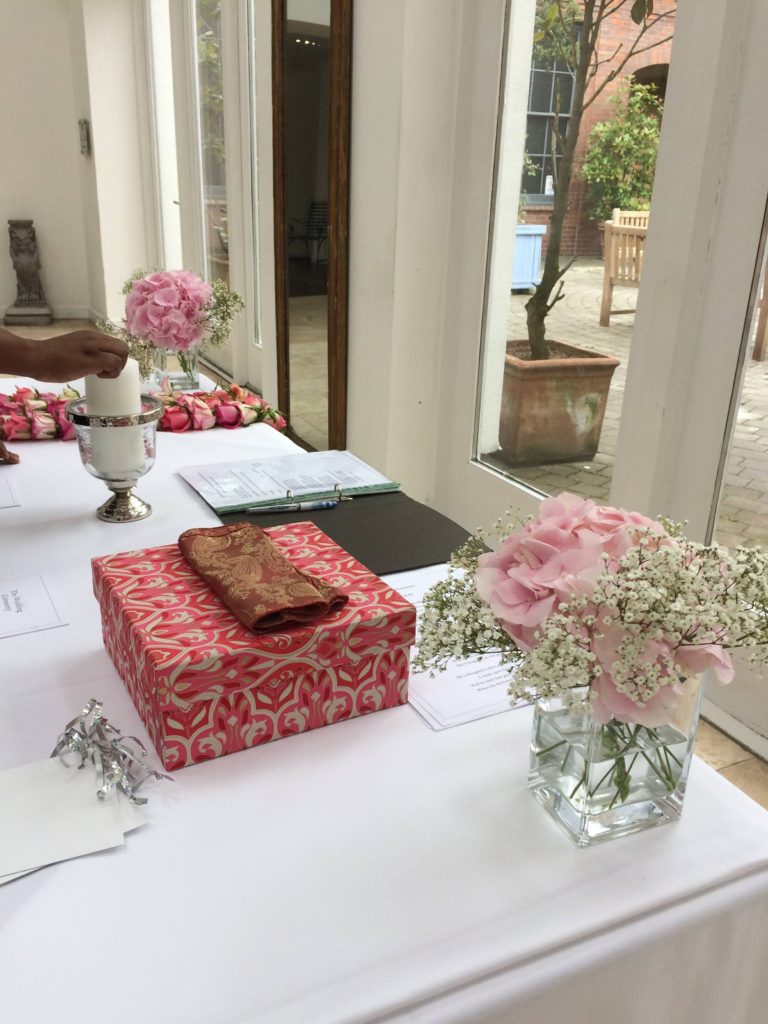
My wonderful friend Ann who is 85, my biggest champion and one of my closest friends, said to me recently “have you thought about moving to America, you’d do so well there I think”. I actually had thought about it. I agree with her. I’m non-conformist, I’m a dissident, it figures. I was recently approached by a Wedding Blog and platform I really admire to become one of their ‘recommended’ suppliers. They are a well known American Blog called Offbeat Bride. They identified with my style, they thought I was a fit. I’ve had no such advances from any British Blogs or Industry platforms even when I have approached them myself.

I asked myself why I am a fit in The States but not in the UK. I have never been to America in my 50 years of life. I’ve never felt drawn to it. I’ve travelled fairly widely, Japan, India, Bahrain, Europe. But the USA has never really been on my radar.
Doing my job has taught me a great deal about my own prejudice. I have learned to understand “meaning’ in a new way. I have learned to hear about how people create their own meaning.
A Proper English Wedding
Ever heard the phrase ‘A Proper English Summer Wedding’. It is the ‘proper English’ part of it that matters. You think you know exactly what that looks like, you might be thinking of Pride and Prejudice and I’ve done a couple of those too…or maybe just white lace and posies. It is all very recent in historical terms. Wearing white only started with Queen Victoria. Getting married originally was largely introduced for the legal protection of women. Meaning probably didn’t come into it for that many people for quite a long period of time.
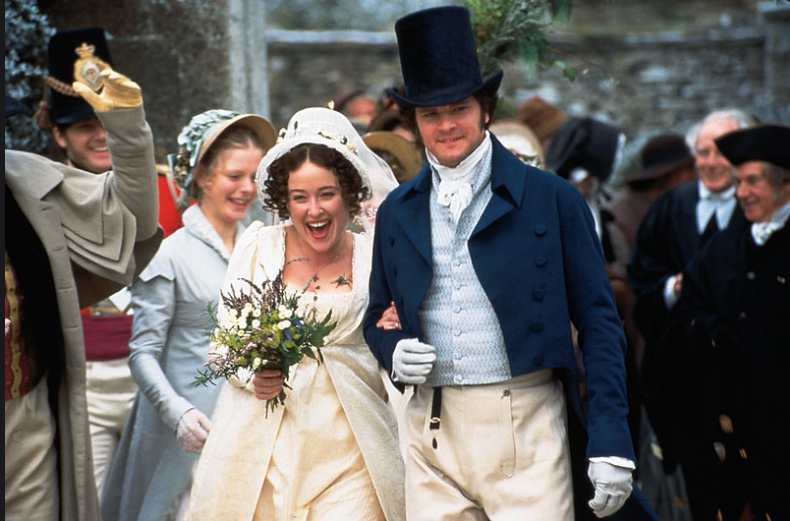
A ‘commercial’, ‘eccentric’, ‘frivolous’, ‘individualist’ model of Ceremony is seen as a bit ‘vulgar’, a bit ‘American’ for our tastes here. We want to set ourselves apart. We know how to do it properly and so why would we compromise and do it The American Way?. It is a patronising attitude.
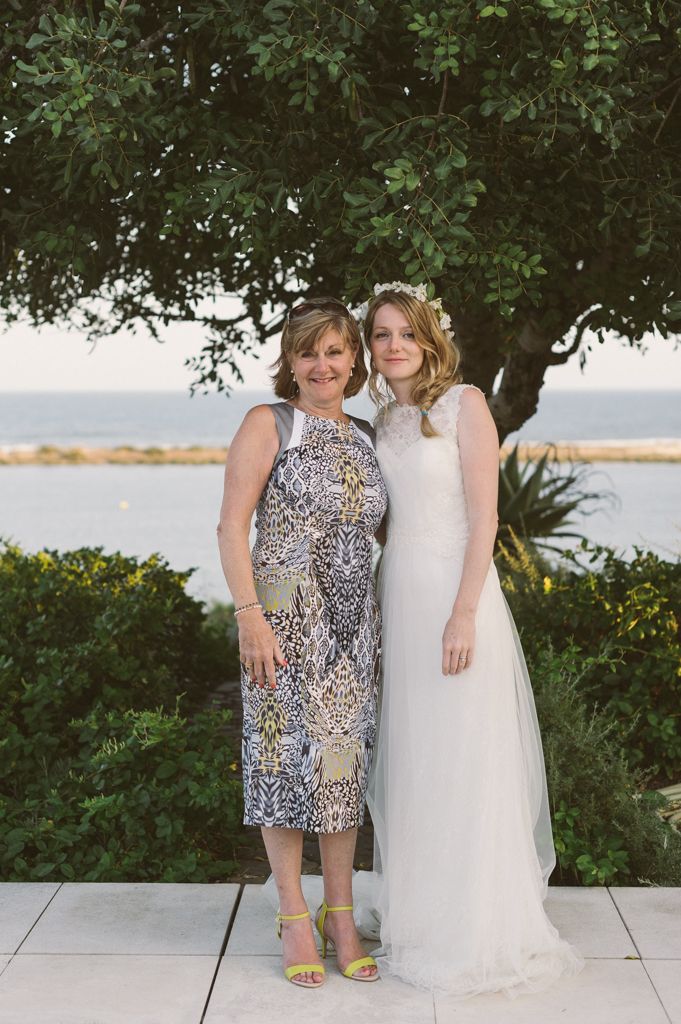
The idea being that ‘we’ can’t just give ‘them’ what they want. That it shouldn’t be about ‘what they want’, it is about what we deem to be proper: legal, ceremonial, traditional, serious, solemn. “We know and the Public just need to be told” is a little too Johnsonian for my liking. When you really think about it, this all boils down to a rather Etonian point of view.
I have come to the realisation that meaning is not given by Conservatives with big ‘C’s or little ones and yes, I’ve left this sentence in on purpose! Do with it what you will.
“Meaning is made.It is an imaginative creation. An act of creativity. For me that is a divine thing, a sacred thing because it means that no one can take ‘meaning’ away from you.“
Meaning is made.It is an imaginative creation. An act of creativity. For me that is a divine thing, a sacred thing because it means that no one can take ‘meaning’ away from you. You can be expelled from your communities, you can be miles from home in an inhospitable place as so many are, but you can still create your own meaning. It is yours. This is profoundly democratising and affirming. This is what I am engaged in rather than a commercial enterprise but unfortunately I do have to earn a living. I am driven by these questions and not by a business plan…
Affirming Ceremonies
How can we work together to create a ceremony that affirms this person? How shall we do that? How shall we tell this story in all it’s particularity? Sometimes that meaning is drawn from Disney, or from Harry Potter, because whether you like it or you don’t, these are significant cultural references for younger generations.
I am working with a gentleman in his mid 70s at the moment and for his send off for his wife there will be Schubert and Goethe and Yates. Trust me when I tell you that generations of Arlas and Elsas are growing up and there will be ‘Frozen!’ Weddings for sure.
Cultures shift, there will always be a cultural hierarchy and we will always have differences in opinion about what is ‘low or high’ art. I don’t have a cultural connection with Disney or Diet Coke, many of my young brides do. I’m not here to make a judgement on that, I have to challenge my own bigotry. I’m there to help them create layers of meaning that affirm them in life.
We Spared no expense! The importance of charging for our services
It is not uncommon for Working Class communities in England to go all out for Victoriana at funerals. Black horses with plumage and polished carriages a la Queen Victoria. There will be expensive limos and there will be black. They want to ‘do it properly’, here we say ‘give them a proper send off’. It is often splendid and magnificent.
It always moves me so deeply that people spend all that money when they often have very little, in order to do justice to affirming that person’s life. Spending money on a funeral, oddly, is considered noble but giving money to the Officiant is considered improper by some in the Marriage Law Reform debate.
Working Class and or economically poor people and those from money who had ‘fallen’ into ‘shameful’ poverty had often been subjected in the past to a ‘pauper’s funeral’. This was a thing of great shame at the time and so there is an enduring stigma around not being able to afford a ‘decent’ funeral. Decency is another very common word around funeral ceremonies in particular. To be Decent is still really important here in the UK, even for criminals!. Taking money as a Religious officiant is still quietly seen as improper and indecent.
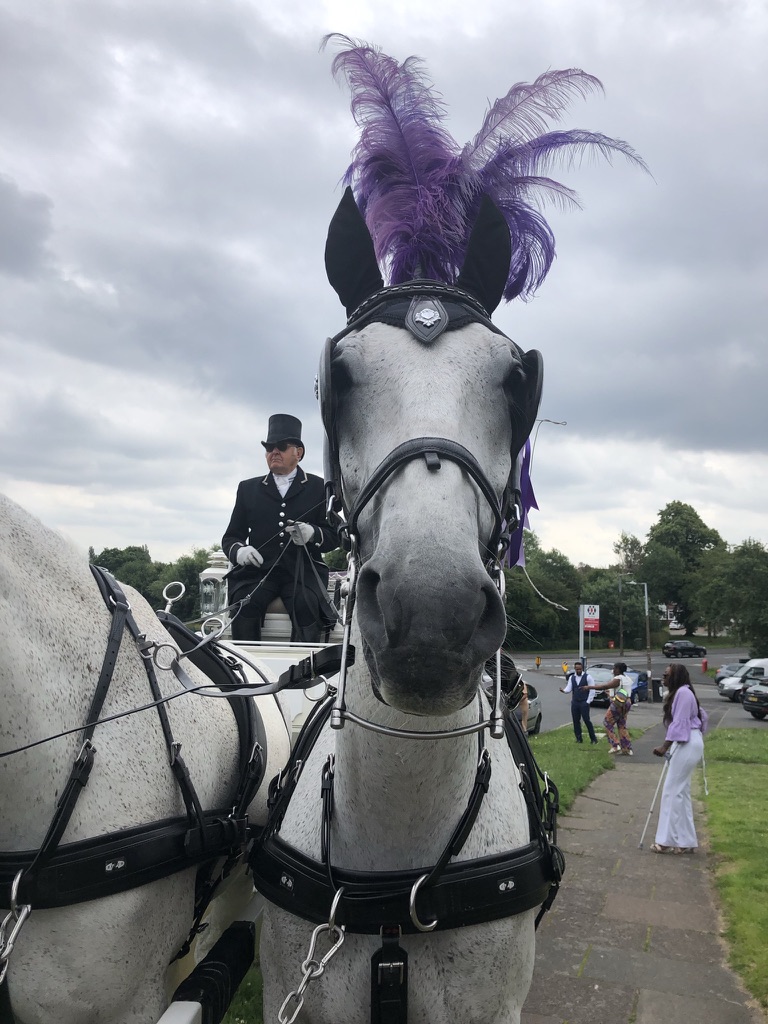
It is hard culturally to charge someone to bury their dead. To see it as a business is even more incomprehensible to many. What they don’t realise is that the Church still charges them. A former client who became a friend, as many of them do, called me out for agonising over charging a family whom I assumed to be on a low income. A lovely florist friend did the same. Firstly they said, you don’t get to patronise them by deciding what they can and can’t afford, and secondly they want to ‘buy the best’ for their loved one…it is the last thing they can do. There is pride and not resentment in that transaction. The old adage “we spared no expense” still holds.
Who decides about what contains ‘meaning’?
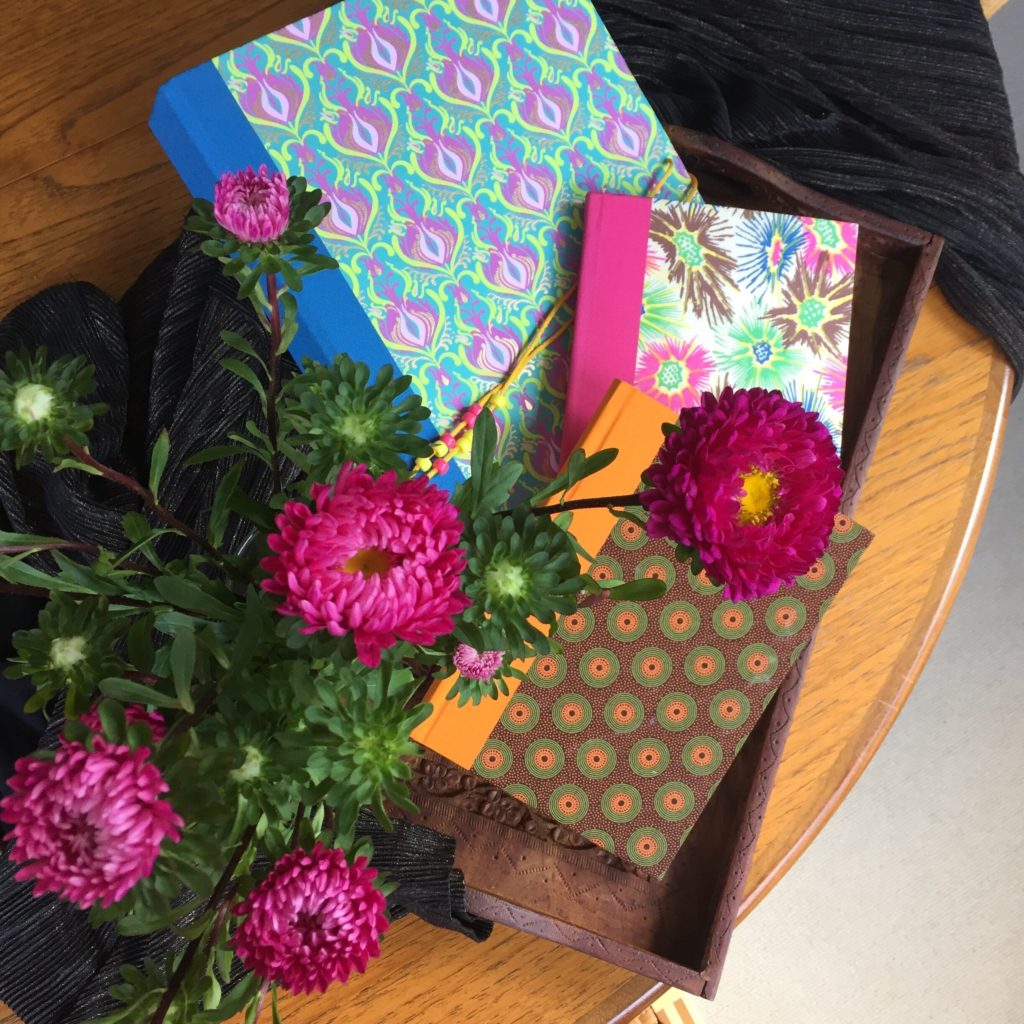
I don’t know who is sitting on the panel that is making the decisions which are guiding our future careers and the future ceremonies of our couples but I will be surprised if there aren’t more from a background valuing a particular understanding of what is ‘proper’ and what is not. Namely Legal, Religious, Institutional but certainly not people like me…!
If we have so much concern in our country for the solemnity of the legal process, the seriousness of it surely shouldn’t be determined on the back of some half-hatched notion of the ‘ceremonial’.
Laws cannot be created and upheld based upon subjective ‘tabloid’ opinion and snobbery. My professional credibility cannot be declared by a random stranger who has no idea what i do, how i do it or why.
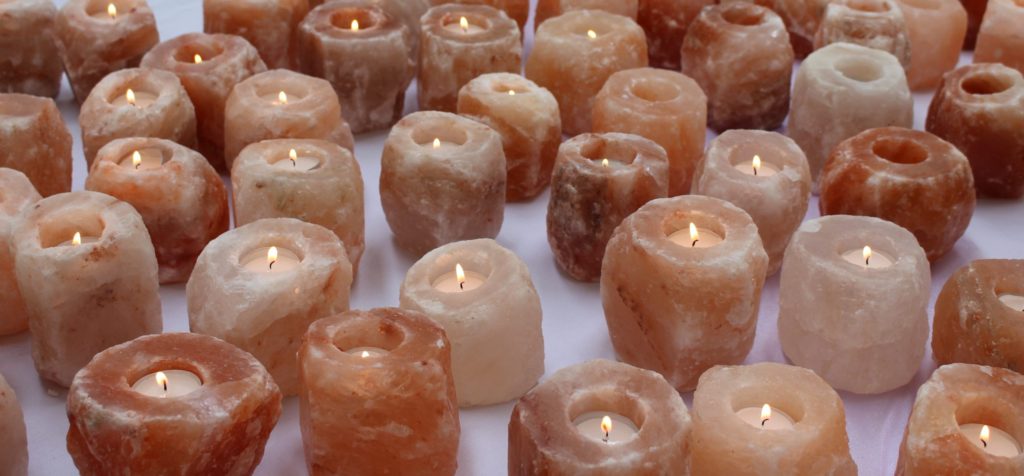
I honestly don’t have time to be writing this. I have a number of deeply meaningful ceremonies that i have been asked to create by wonderful people with opinions I take seriously. Not one of them asked me for ‘solemn’ but dignity, will be inherent.
“To give up control over who and what can be taken seriously is a big gamble for people who think they are more important than they are.“
When I have the time and I’m not battling alongside my colleagues to be taken seriously in this debate I intend to write a blog about the work of Barbara Ehrenreich. She is an academic and has written a fascinating book called Dancing in the Streets in which she examines the historical, political and social implications of ‘collective joy’.
She argues cogently in ways that some Marriage Law reformers clearly don’t.
Of relevance is that she sees a pattern in history of the repression by the State or those in power of ‘collective acts of joy’. Community events like Festivals have historically been deemed dangerous to the Status Quo, a challenge to authority, as anarchic. Well, if what I do is anarchic, I’m glad. Convention has, as they say ‘never been my thing!’.
It is possible I think to see this current obsession with ‘solemnity’ and its outmoded focus on the illegitimacy of fun as having a direct line to all that. It will take time to unpack it. Because i have to work so incredibly hard to earn a living that some people would deny me, I won’t be able to do that yet.
It is risky though, if you are a Law creator, to allow people to ‘create their own meaning’, to encourage a public engagement with thinking for ourselves, to allow women like me to earn financial independence and credibility in our field. To give up control over who and what can be taken seriously is a big gamble for people who think they are more important than they are.



